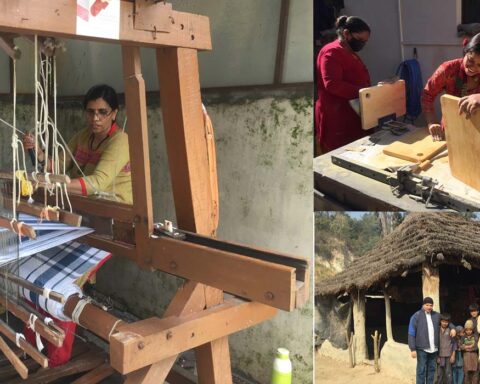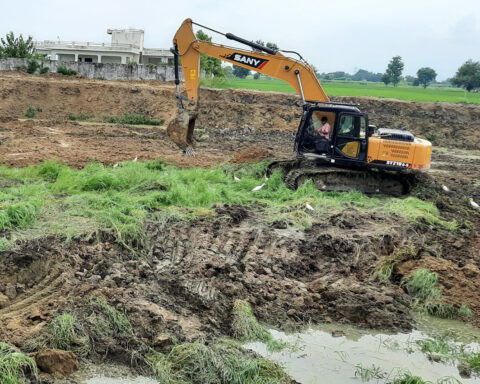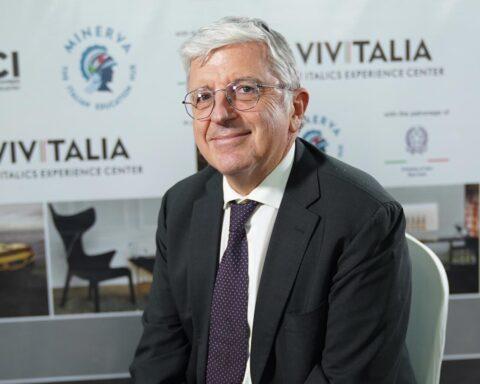Alex Lucitante and Alexandra Narvaez from Ecuador, Chima Williams from Nigeria, Julien Vincent from Australia, Marjan Minnesma from the Netherlands, Nalleli Cobo from the United States, and Niwat Roykaew from Thailand, have bagged the annual Goldman Environmental Prize for 2022.
The winners include a pair of indigenous forest protectors who defended their ancestral territory from mining, a lawyer who fought a multinational oil company demanding damages to communities, a planner whose campaign successfully stopped coal financing in Australia, a woman who won the case against the Netherlands over climate change, a young activist who led a movement leading to the closure of an oil drilling site, and a respected teacher who stopped calamitous blasting to widen the Mekong River.
Goldman Environmental Prize
Known as the Green Nobel Prize, the Goldman Prize—founded in 1989 by US philanthropists Rhoda and Richard Goldman—honours environmental activists from each of the six continents. This year marks the 33rd anniversary of the award.
Dubbed as the world’s foremost award for grassroots environmental activists, the Goldman Environmental Prize this year recognised indigenous activists and lawyers who fought against transnational corporations and governments to force climate action.
Goldman Environmental Prize 2022 Winners
Confronting authoritative, vested interests, these winners demonstrated the power of united community action and determination to save the planet from environmental collapse.
Alex Lucitante and Alexandra Narvaez spearheaded an Indigenous movement to protect their people’s ancestral territory from gold mining, reads the Goldman Prize website. Their leadership resulted in a historic legal victory in October 2018, when Ecuador’s courts cancelled 52 illegal gold mining concessions that were illegally granted without the consent of their local community, Cofán. Today, the community’s legal success protects 79,000 acres of unspoiled, rich diversity rainforest in the headwaters of Aguarico, a river sacred to the Cofán.
Chima Williams of Nigeria organised two communities affected by oil spill damages in the Niger Delta to sue oil major Shell. Williams organised community meetings and surveys of the pipelines and oil spill damage and brought together the communities of Goi and Oruma to take legal action against Shell Petroleum Development Co. of Nigeria (SPDC), a subsidiary of Shell that operates more than 6,000 km (3,700 mi) of pipelines in the Niger Delta. In 2004 and 2005, oil spills caused by SPDC polluted farmland, drinking water and wetlands in and around Goi and Oruma. After a 13-year-long legal battle, the company was held accountable for the first time in a Dutch court.
In 1998, Williams also founded the country’s first-ever student-run environmental justice group, Students Environmental Assembly Nigeria. He is currently the executive director of ERA/Friends of the Earth Nigeria and serves as an environmental lawyer who prosecutes corporations over environmental pollution cases in Nigeria.
Julien Vincent in Australia attacks the finances of the fossil fuel industry. Since 2013, his NGO, Market Forces, has targeted the industry’s financial enablers. He presented the leaders of financial institutions with thorough data on the risks and costs of coal investment, blending financial arguments with personal appeals, empowered their employees to speak out, ran campaigns; partnered with a coalition of other advocacy groups; and engaged shareholders to call for an end to coal financing. The efforts delivered, as in 2019, Commonwealth Bank committed to ending its coal investments by 2030, followed by the other major banks, effectively drying up capital for new coal projects in Australia.
Marjan Minnesma through her works highlighted the work of the Netherlands as a major polluter. The 55-year-old professional founded Urgenda in 2001 to work full-time on climate solutions. This was important, as nearly 90 percent of the Netherlands’ energy is generated by coal and natural gas, despite its vulnerability to climate change and sea level rise. A third of the country lies below sea level. Filing a lawsuit against the Dutch government in November 2013, Urgenda demanded a 40 percent reduction in greenhouse gases by 2020. Today, inspired by Minnesma’s work, activists in Belgium, France, Ireland, Germany, Britain, Switzerland, Norway and New Zealand are following taking similar actions.
Nalleli Cobo of the United States began her activism at age 9. Now 20 and a cancer survivor, she led a citizens’ movement that shut down an oil drilling site and initiated the process to phase out the largest urban oil field in the country. The youth activist hails from Los Angeles, California, a city with thousands of active oil wells throughout its territory and more than 4 million people, often in low-income, Black and Latino neighbourhoods. Urban oil wells have been clearly linked to asthma and other health problems, and about 5,80,000 Angelenos live less than a quarter mile (600 meters) from an active well.
Cobo fought against one drilling site, operated by AllenCo Energy, located behind a building 10 m (30 feet) from her childhood home. The polluted site made many suffer from nosebleeds, headaches and other serious health impacts. She also co-founded People not Pozos to secure safe and healthy neighbourhoods and the South Central Youth Leadership Coalition to beat environmental racism in the community.
Niwat Roykaew, a teacher, fought against a Chinese development company that proposed blasting the Mekong River to accommodate massive cargo ships. Mekong River flows through China, Vietnam, Laos, Thailand and Cambodia, providing resources to more than 65 million people and the immense diversity of aquatic life. In the early 2000s, China announced plans to blast rocky sections of the Mekong near the Thai-Laotian border to accommodate 500-ton Chinese cargo ships. The green warrior led communities and scientists to petition the government and sustained action that eventually halted the development plan.

























